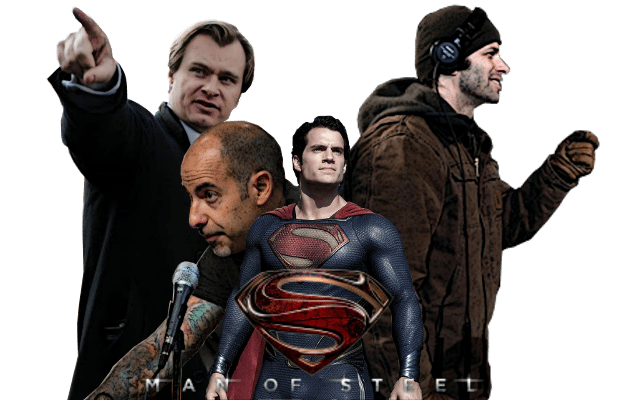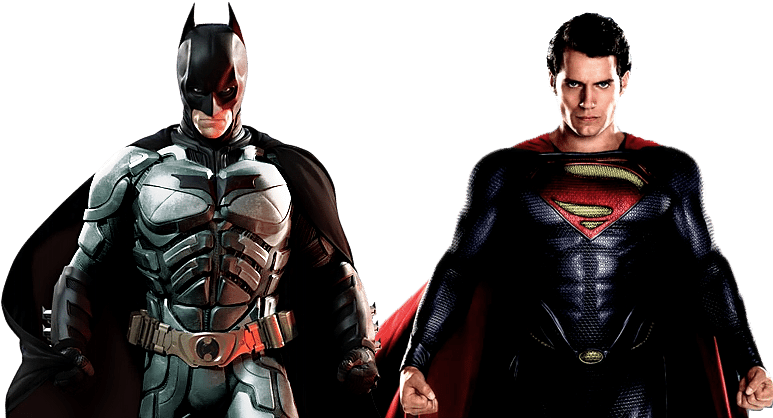Why so serious? – Superheroes and the problem of realism
Spoilers for Man Of Steel to follow.
When I left the cinema having seen Man Of Steel, I felt hollow. It was enjoyable, but there was something missing, something off about the film. I couldn’t put my finger on it, but after some months I think I have an idea of what bothered me and is a problem with superhero cinema in general.
I’ve been reading comics for years and it was in their pages that I learnt my morals. Superman is particularly dear to me in that respect and offers philosophical tales on the nature of good and evil. So it was with high expectations that I anticipated Man Of Steel, which had the forces of Christopher Nolan and Zack Snyder behind it.
In many ways, Man Of Steel is the pinnacle of this problem, which extends back to the days of the leather-clad X-Men. Batman Begins, Christopher Nolan’s reboot of the Batman franchise, exacerbated the problem of realism. No one can fault the realism in that film, nor the sequels; it sat perfectly with the character and his world. However, in the call for “legitimate” superhero cinema, Hollywood has used this style in other stories where it doesn’t fit.
 The problem with applying realism to superheroes is that no one really knows how it’s done. These characters are inherently fantastic – after all, they can fly! For many filmmakers the easy way to capture realism is through “Nolanizing” the source material a la Batman Begins. This relies on an under lit colour palette, moody characters, and higher levels of violence. This excludes children from the audience, a point I’ll get to later.
The problem with applying realism to superheroes is that no one really knows how it’s done. These characters are inherently fantastic – after all, they can fly! For many filmmakers the easy way to capture realism is through “Nolanizing” the source material a la Batman Begins. This relies on an under lit colour palette, moody characters, and higher levels of violence. This excludes children from the audience, a point I’ll get to later.
Nolanization often results in characters that are completely different from their comic book counterparts. As a comic book reader, this dismays me but I’ve accepted it. I know now that I shouldn’t expect the comics I love to be transferred to screen – Hollywood has no interest in it and probably thinks they would be too cheesy. But when they change the characters so much that they are unrecognizable, I get upset. You wouldn’t do this to The Great Gatsby, why do it here?
A particularly bothersome but brilliant reinterpretation was Heath Ledger’s Joker in The Dark Knight. Ledger’s portrayal was fantastic – however re-inventing the character as a serial killer was unnecessary to make him terrifying. Take a look at the 90s Batman cartoon series, or the Arkham games, starring Mark Hamill as the Joker. Hamill’s interpretation sticks to the original and is scary, but children can still watch this show or play the video games because the violence is minimal. Hamill never stuck a razor in his mouth or planted a bomb in someone’s stomach. The pathos is what makes the role scary.

There have been adaptations where realism has made the film better. Dredd immediately springs to mind as one such film. Based on the comic book 2000 AD, the film uses violence to inform the viewer of the dystopian future setting. However, there is a crucial difference between Dredd and Man Of Steel – Judge Dredd was always written to be an adult comic. I bought an issue of 2000 AD the other day and was asked to show ID. Violence as realism isn’t a problem in this film, because it’s targeted for adults. The problem is with films that are supposed to be targeted for every age but ultimately carry adult themes that would be unsuitable for younger children.
I think that’s why Marvel films have been so successful over the past 5-6 years. Marvel knows their properties are all-ages, and haven’t really messed with that formula. It looks like future films will embrace fantasy with the introduction of the cosmic Guardians Of The Galaxy and the science fiction Ant-Man comics. These concepts sound ridiculous, and for that I give Marvel kudos – they believe in these characters and are willing to throw their creative weight behind them. That’s something that DC Comics needs to learn from.
As it currently sits most of DC’s films are dabbling in realism. The press has crushed the few recent exceptions, Superman Returns and Green Lantern. DC needs to interpret these reviews differently – the films were not bad because of the unrealistic story, but because of a lack of characterization, bad direction, and in the case of Green Lantern, an unfamiliarity with the story.
Man Of Steel is the starting-point for the DC cinematic universe for two reasons – its financial success and to remain competitive with the Marvel films. DC doesn’t seem to notice the polarized reception, pushing forward with a second film to feature the meeting of Superman and Batman. Yet it’s inspired by the politically abysmal if distinguished The Dark Knight Returns, in which Superman is a government stooge on a mission to assassinate a volatile Batman. Who wants to see that as their first on-screen pairing.
I would be less worried about the DC films going forward if the realism was complemented with better writing and optimism. But Man Of Steel only justified realism with neo-Gothic costuming and excessive violence. In one scene the film’s villainess, Faora, snaps three necks in a row. The film tastelessly takes inspiration from 9/11 footage in the final battle. I looked around; how could any parent sensibly let their children watch this? And yet, lunchboxes with Henry Cavill’s face are being marketed at these children that won’t be able to see the film. We cannot pretend that children won’t see these films – they WANT to see them, because they star their role models.
The controversial finale is the most troublesome of all creative decisions. I felt that Superman had failed; for all his super heroics, what exactly had he achieved? He may have stopped Zod, but at what moralistic cost? Superman has always been a figure that we look up to. How can we do that when he is brought down to our level of violence?
Maybe I care about the character too much. But there is no excuse for a Superman movie that isn’t all-ages. I point you to the comics All Star Superman and Superman For All Seasons, which can be read by children and have real literary merit. The work of Darwyn Cooke is also apt for lighter-hearted and thematically rich adaptation.
Ultimately, children are one of the biggest markets for superhero stories, and it is through these stories that a lot of them learn their morals. But what moral is being imparted in Man Of Steel and The Dark Knight? In an era when rape scenes are played for laughs in Kick Ass 2 I feel slightly jaded. Whilst films such as The Rocketeer and The Phantom may not have the intellectual capacity of any of the Nolan films, I would watch them any day over the latter. I think the thing that disturbs me the most about Man Of Steel is its inherent cynicism. I accept that these characters must be re-invented for modern audiences; it’s part of their relevance. But if this is the Superman for the modern age, what does that say about us? I despair to think of it.



Comments